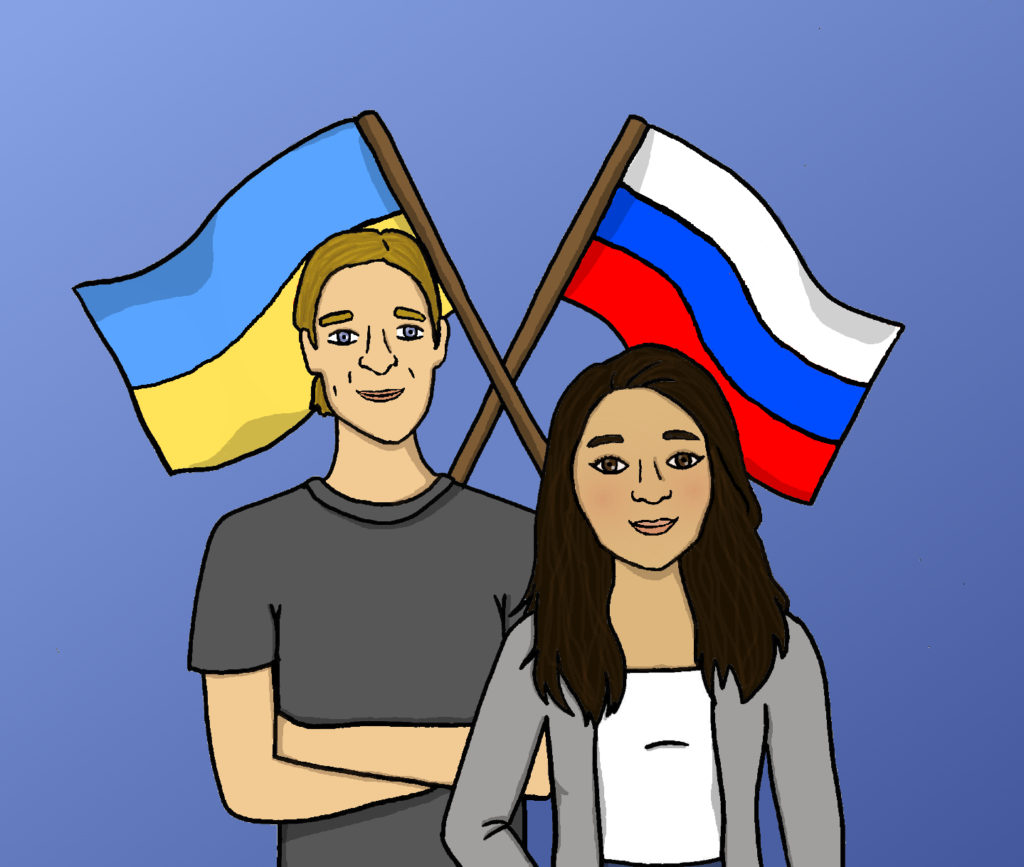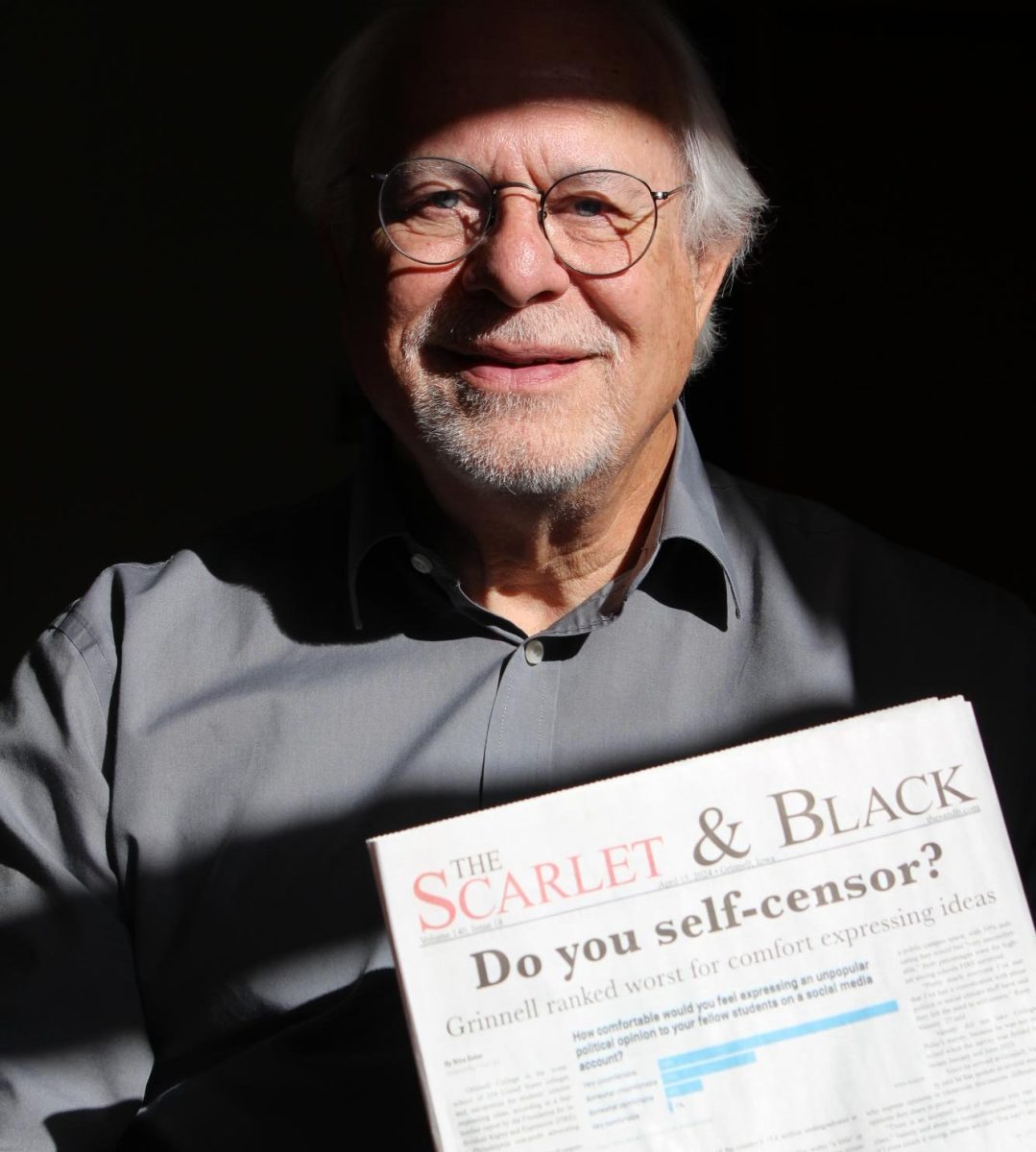By Lin Hsu and Zach Willis
hsuhuali@grinnell.edu and willisza@grinnell.edu
A week and a half ago, President Vladimir Putin of Russia began to command what he called “a special military operation” in Ukraine which marked the beginning of the 2022 Russia-Ukraine War. The battle for Ukraine shocked the world as Russian troops began invading major cities and towns in Ukraine. We write this column from day six of the war. The city of Kherson in southern Ukraine has fallen to Russian troops, and western cities in Ukraine are packed with refugees. This article investigates the means currently being employed against Putin and what the situation means for the future of global affairs.
Sanctions
It appears that in today’s world, economic sanctions are the most viable option for many countries, especially the U.S., during international disputes. The main reasoning for this is that sanctions are a non-lethal display of disapproval that don’t require military intervention. Since the 1990s, sanctions have been a popular foreign policy tool for the U.S. for both punishing violations of human rights and leveraging negotiations. But in this instance and many others, the use of sanctions begs the question: Who is impacted first, the Russian leader or the Russian people? With the efforts by many western nations to combat Putin’s actions with economic sanctions, it is imperative that there is an understanding of “Russia” as being more than just Putin himself. As financial sanctions rock Russia’s economy, their repercussions are bound to reverberate, but with Russian citizens as the first ones harmed.
In 2014, when Putin annexed Crimea from Ukraine, heavy sanctions were imposed on Russian trade and investment. These sanctions didn’t impact his resolve. Today, the EU, United States, United Kingdom, Japan, New Zealand, Switzerland, and Australia have all hit Moscow with different sanctions. The damage of the sanctions has already had a direct impact on innocent civilians in Russia, including a large segment of the Russian population that doesn’t support the actions of its country’s leader. Russians around the world are facing the consequences of the war as their banks become frozen and exchange rates grow higher each day. Yet, as financial difficulties are hitting home, they aren’t guaranteed to stop Putin anywhere in the short term.
From Iran to North Korea to Iraq, the failures of economic sanctions fill history as they have detrimental impacts on the citizens of these countries. The impacts have included an increase in the suffering of marginalized communities including women and children, enlarged poverty gaps and even large-scale emigration. While these sanctions are a part of a show of solidarity with Ukraine and meant to hit back against the actions of the Russian leader, there perhaps needs to be a sharper instrument rather than a blunt blade. As the United States announces a new round of sanctions and export controls are going to target the Russian economy, further consideration for their impact on ordinary Russian citizens is necessary.
Implications
Putin’s invasion of Russia is his demonstration of determination to not only disrupt the order in Europe but to renegotiate terms of order in the international community. In his eyes, the current security order of Europe stands in the way of any future between Russia and Ukraine. According to Fiona Hill, an expert on Russian and European affairs, Putin believes in the idea of “Russky Mir,” of a “Russian world.” Within this Russian World, Ukrainians and Russians are the same and it is Putin’s goal to bring together “all Russian-speakers in different places that belonged at some point to the Russian tsardom.” Ukraine is the first step towards this vision and in pursuing it, Putin is warning other countries not to interfere or prepare to face “consequences they have never seen.”
The security order that so plagues the thoughts of Putin is NATO (the North Atlantic Treaty Organization). Devised during the Cold War as a counterweight to Soviet power, NATO spans from Estonia to Turkey covering the majority of European states and the U.S. The core tenet of this association is contained in Article Five of its charter which states, “The Parties agree that an armed attack against one or more of them in Europe or North America shall be considered an attack against them all.” In essence, this means that attacking one NATO state means declaring war on every NATO state.
Among the many NATO states in Eastern Europe, Ukraine stands as a clear outlier. Despite the inclusion of its neighboring Poland, Hungary, Slovakia, and Romania, Ukraine was never admitted to the organization. The reasons for this are myriad and cannot be done proper justice here, but the important ramification is that, unlike most other European states, there is no one obligated to come to Ukraine’s rescue. Instead, Ukraine’s lack of security guarantees leaves it marooned, stranded, buoyed by goodwill, yet unable to truly defend itself against a superiorly powerful aggressor.
We’re reminded of this lonely status as we hear the same things repeated again and again on our news: “A war of unbridled conquest;” “Civilians take up arms.” But if you were to look just under the surface, you would see the sentiment that reverberates in each of us.
“I thought we were past this.”
“I thought we were different.”
Even those of us callous enough to choose international relations as a field feel this in our hearts. We knew it was possible but there is always the hope that it hasn’t happened yet, and therefore maybe it never will.
Sanctions can change the jaded cost-benefit analysis that leaders make in these moments, weighing economic opportunities from conquest against potential setbacks and funds wasted.
But, if you are committed to one thing and one thing only, there is no price you will not pay. The invasion of Ukraine will cost Putin, and more importantly the Russian people dearly, but if Putin is truly as committed to remaking Russia’s former “glory” as he appears to be, then sanctions will not stop him, at least in the short term while he retains popularity.
For the self-governing peoples throughout the world who are claimed by stronger, more aggressive powers and for those who see themselves in the huddled masses in the Kyiv subway, you have reason to fear. The rules of the game are being laid out and they do not look favorable. But before we despair, let us not only look to the people of Ukraine and their valiant fight for freedom but to the rest of the world, where thousands have marched for peace and leaders have set aside their squabbles to assist in whatever way they can.
Before last week you may have thought the age of taking by force was over. We may have, too. And we may both have been wrong. But perhaps only now that we can see our world for what it truly is, can we do anything to change it.



































































